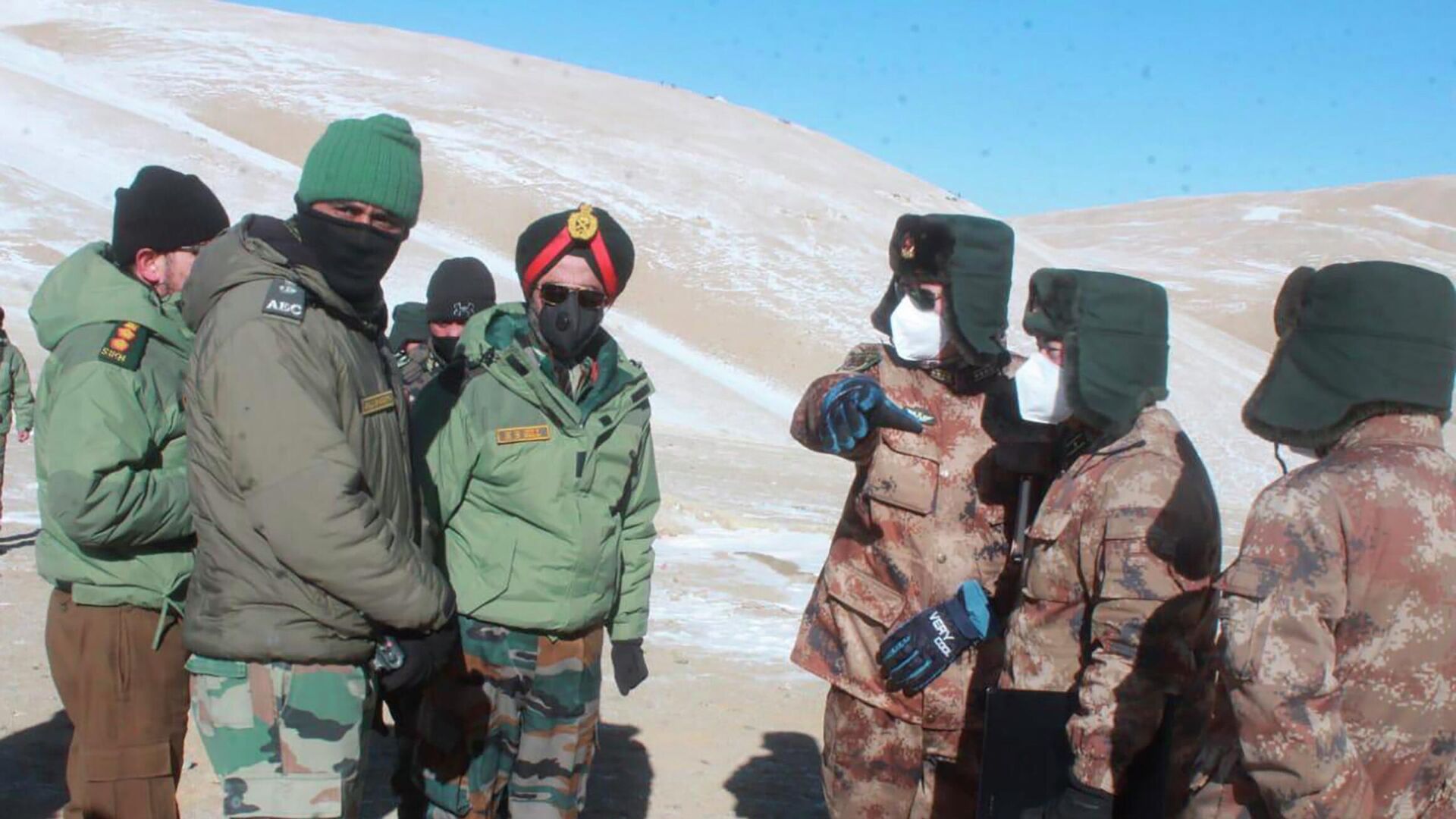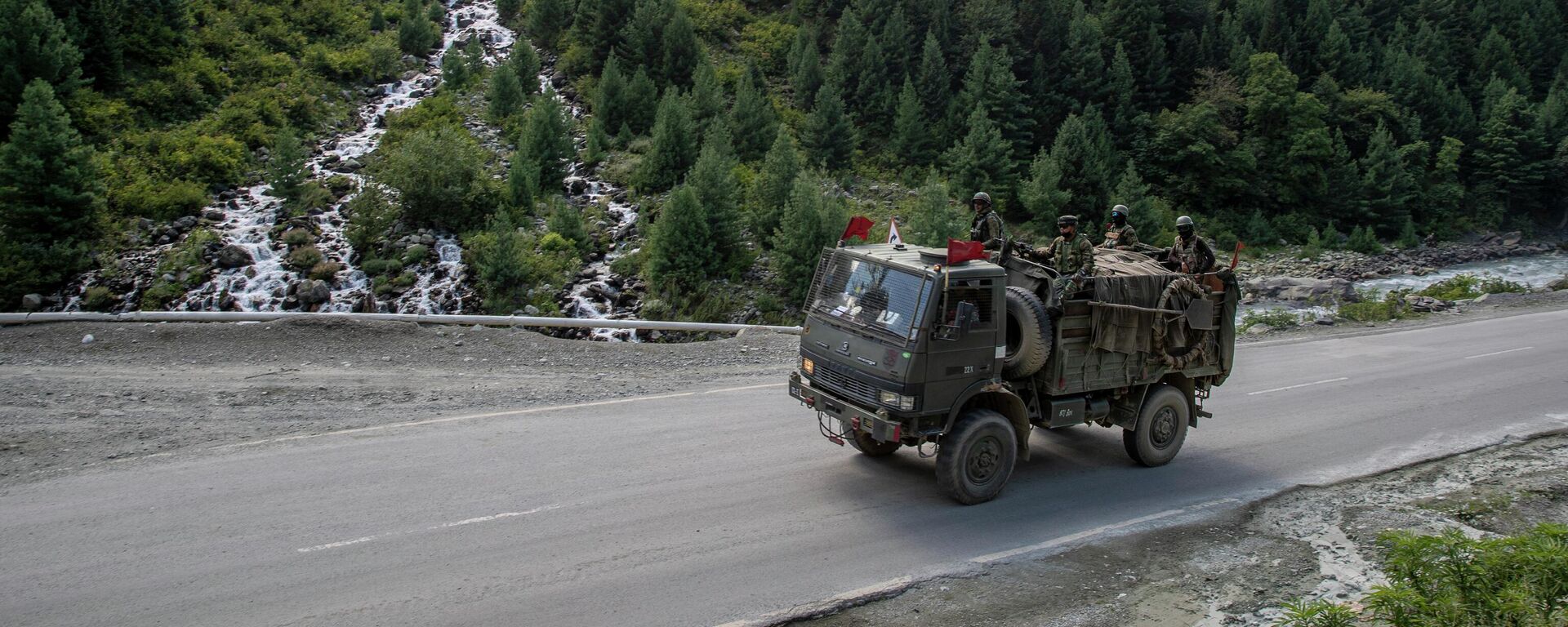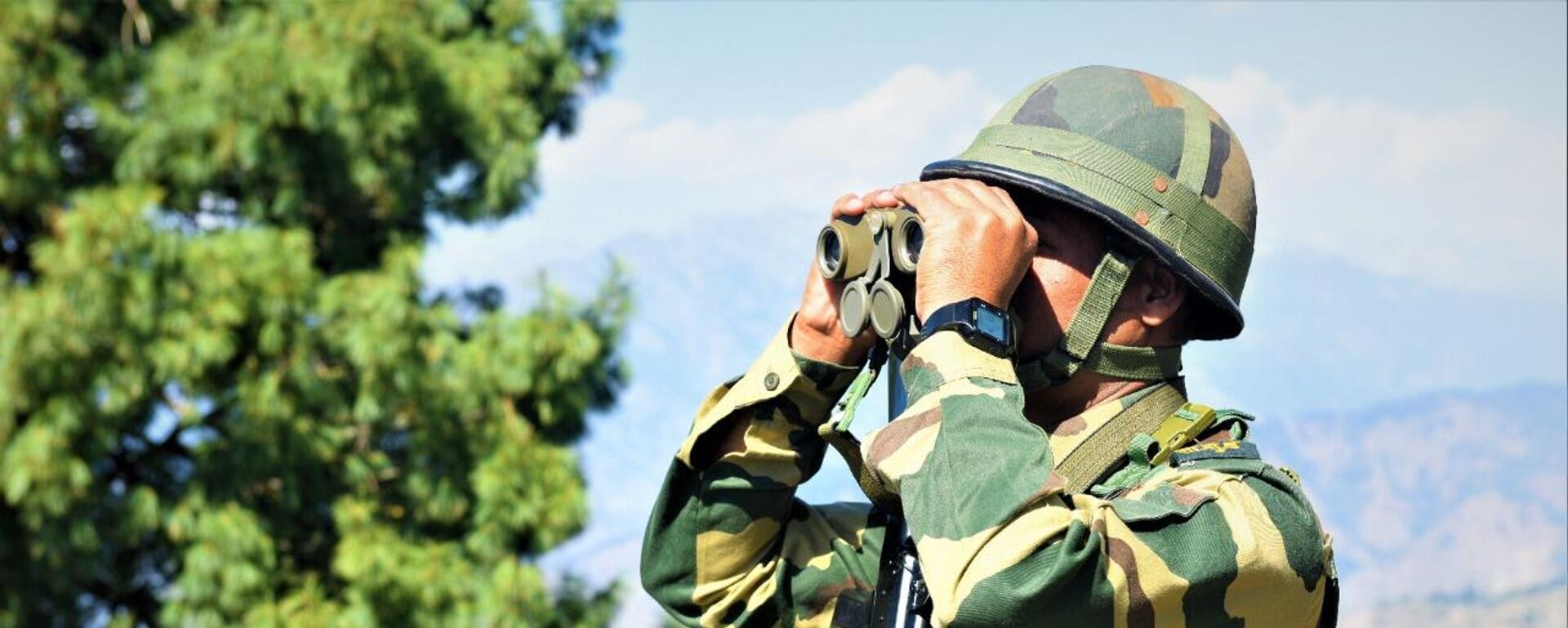https://sputniknews.in/20221225/india-and-china-may-withdraw-troops-from-lac-in-2023---expert-----231768.html
India and China May Withdraw Troops from LAC in 2023 - Expert
India and China May Withdraw Troops from LAC in 2023 - Expert
Sputnik India
When India and China will withdraw troops
2022-12-25T15:15+0530
2022-12-25T15:15+0530
2022-12-25T15:15+0530
defenсe news
india
line of actual control (lac)
china
military build-up
https://cdn1.img.sputniknews.in/img/07e6/0c/19/231390_0:0:2323:1307_1920x0_80_0_0_93536fc61403e179f4057115f6cdf299.jpg
China and India have agreed to maintain security and stability along the Line of Actual Control (LAC), the disputed 3,488 km border that separates northern India from China, but have not yet withdrawn their forces from the mountainous area.In early September, China and India held a new round of troop withdrawals along the border in Ladakh. However, there were no reports on the number of military units withdrawn from the line of contact. Meanwhile, according to Indian media, about 60,000 troops were deployed in these areas from each side.Sputnik had an interview with Alexey Kupriyanov, head of the Group for South Asia and the Indian Ocean Region at IMEMO RAS, who shared his ideas on ongoing conflict between the two countries.On December 9, hundreds of Indian and Chinese troops clashed along the LAC in Arunachal Pradesh’s Tawang sector; the move was the result of the decisions of local junior commanders, according to Kupriyanov.However, the expert gave an optimistic prediction for the work of the Sino-Indian border negotiation mechanism in 2023.The opposition in India, in their pre-election interests, will strengthen the accusations of the government of Narendra Modi in the absence of toughness against China, Alexey Kuryanov predicts. If there are no new incidents at the border, then, most likely, the ruling government will be able to "remove this topic from the political agenda", the expert added.At the 17th round of negotiations, the countries agreed to remain in close contact, maintain dialogue through military and diplomatic channels, and work out a mutually acceptable solution to the remaining settlement issues as soon as possible.
https://sputniknews.in/20221222/no-breakthrough-on-ladakh-standoff-but-india--china-to-maintain-calm-194035.html
https://sputniknews.in/20221214/india-china-praised-for-quick-disengagement-after-tawang-border-clashes-85239.html
india
line of actual control (lac)
china
Sputnik India
feedback.hindi@sputniknews.com
+74956456601
MIA „Rossiya Segodnya“
2022
Sputnik India
feedback.hindi@sputniknews.com
+74956456601
MIA „Rossiya Segodnya“
News
en_IN
Sputnik India
feedback.hindi@sputniknews.com
+74956456601
MIA „Rossiya Segodnya“
Sputnik India
feedback.hindi@sputniknews.com
+74956456601
MIA „Rossiya Segodnya“
india, china, lac
India and China May Withdraw Troops from LAC in 2023 - Expert
According to a Russian expert, the opposition in India will step up demands for tougher measures on the border with China.
China and India have agreed to maintain security and stability along the Line of Actual Control (LAC), the disputed 3,488 km border that separates northern India from China, but have not yet withdrawn their forces from the mountainous area.
In early September, China and India held a new round of troop withdrawals along the border in Ladakh. However, there were no reports on the number of military units withdrawn from the line of contact. Meanwhile, according to Indian media, about 60,000 troops were deployed in these areas from each side.
Sputnik had an interview with Alexey Kupriyanov, head of the Group for South Asia and the Indian Ocean Region at IMEMO RAS, who shared his ideas on ongoing conflict between the two countries.
"The meeting mechanism is very good working. Another thing is that in order for it to lead to some kind of serious breakthrough, a political desire, a political decision is needed on both sides. Such as, for example, the Vajpayee government had in its time [traveled by bus to Pakistan from India in an attempt to normalize relations]," Kupriyanov told Sputnik.
On December 9, hundreds of Indian and Chinese troops clashed along the LAC in Arunachal Pradesh’s Tawang sector; the move was the result of the decisions of local junior commanders, according to Kupriyanov.
"A huge number of problems are due to the fact that some lieutenant from one side or the other decided to distinguish himself. This is not aggressiveness of actions, but assertiveness, the desire to defend one's territory at any cost. No one can guarantee in the future that some of the active lieutenants from the Indian or Chinese side will not try to demonstrate their service zeal. All this can lead to unpleasant incidents that can greatly slow down the border settlement," - Kupriyanov noted
However, the expert gave an optimistic prediction for the work of the Sino-Indian border negotiation mechanism in 2023.
"If there is no crisis in Ladakh, then, most likely, in the new year, the withdrawal will end safely to mutual satisfaction. However, during the year, some unpleasant incidents on the Sino-Indian border cannot be completely ruled out, especially given the upcoming general elections in India in 2024," the Russian expert said.
The opposition in India, in their pre-election interests, will strengthen the accusations of the government of Narendra Modi in the absence of toughness against China, Alexey Kuryanov predicts. If there are no new incidents at the border, then, most likely, the ruling government will be able to "remove this topic from the political agenda", the expert added.
"This is a universal device [relations with China] when one can always say that the government is not assertive enough to defend Indian interests on the border with China. Right now, this topic is not very important, at least in the next six months, because there is about a year and a half left before the national elections. This topic plays poorly in regional elections, except for the border states," Kupriyanov said.
At the 17th round of negotiations, the countries agreed to remain in close contact, maintain dialogue through military and diplomatic channels, and work out a mutually acceptable solution to the remaining settlement issues as soon as possible.



